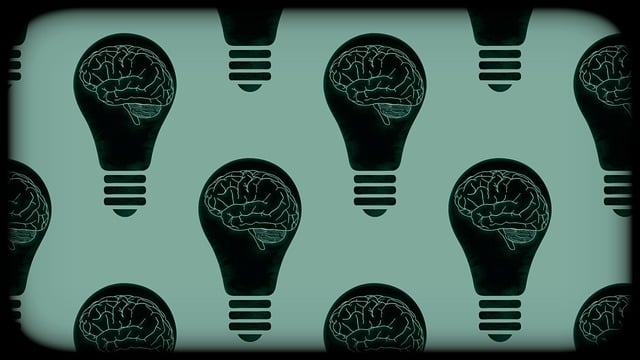Promoting mental wellness in young children requires a holistic approach, emphasizing early intervention through self-assessment tools that aid parents and caregivers in recognizing emotional needs. Tailored therapy techniques, incorporating play and storytelling, combine with parenting skills training, such as mindfulness exercises, to address issues like anxiety and depression effectively. Integrated care plans, based on individual assessments, ensure personalized strategies for optimal development, fostering resilience and healthy emotional regulation in young minds.
Mental wellness self-assessment tools play a pivotal role in identifying and addressing challenges young children face. This article explores key aspects of developing such tools from a parent’s perspective, focusing on early intervention strategies. We delve into designing effective therapy techniques tailored to children’s mental health needs, empowering parents through skills training. By integrating feedback and personalized care, these tools revolutionize how we support young minds, ultimately enhancing their well-being and fostering healthy development.
- Understanding Mental Wellness in Young Children: A Parent's Perspective
- The Role of Self-Assessment Tools in Early Intervention
- Designing Effective Therapy Techniques for Children's Mental Health
- Parenting Skills Training: Equipping Parents with Supportive Strategies
- Integrating Feedback and Personalized Care for Optimal Results
Understanding Mental Wellness in Young Children: A Parent's Perspective

Understanding mental wellness in young children is a crucial aspect of their overall development and well-being. As parents, recognizing and addressing emotional and psychological needs early on can make a significant difference in a child’s life. Mental wellness involves a child’s ability to manage emotions, cope with challenges, and maintain a positive outlook. It encompasses various skills like self-awareness, social interaction, and problem-solving abilities. Parents play a pivotal role in fostering healthy mental habits by creating a supportive environment that encourages open communication and emotional expression.
Through effective parenting skills, such as practicing self-care to prevent burnout and cultivating positive thinking, parents can help their children develop resilience and build strong coping mechanisms. Therapy for young children is not just about addressing issues; it’s a tool to empower them with the necessary skills to navigate life’s ups and downs. By integrating mental wellness into daily routines and parenting practices, we can ensure that children grow up with the resources needed to thrive both emotionally and psychologically.
The Role of Self-Assessment Tools in Early Intervention

Self-assessment tools play a pivotal role in early intervention strategies for mental wellness, especially among young children. These tools empower parents and caregivers by providing an initial glimpse into a child’s emotional state and potential areas of concern. Through simple yet effective methods like self-care practices, Mental Wellness Journaling Exercises, and Coping Skills Development activities, parents can gain valuable insights into their child’s behavioral patterns and emotional responses.
Early identification of mental health issues in children is crucial for timely therapy and the implementation of effective parenting skills. Self-assessment tools offer a non-intrusive way to initiate conversations about mental wellness, encouraging open communication between parents and children. By regularly incorporating these tools into daily routines, families can foster a supportive environment, promote self-awareness, and ultimately enhance overall well-being.
Designing Effective Therapy Techniques for Children's Mental Health

Designing effective therapy techniques tailored for young children’s mental health is a nuanced process that requires careful consideration. When addressing issues like anxiety, depression, or trauma in kids, therapists must employ age-appropriate strategies. This often involves incorporating play therapy, art therapy, and storytelling to create a safe, engaging environment where children can express their emotions and work through challenges.
Parenting skills also play a crucial role in fostering mental wellness in children. Mental health professionals can guide parents with techniques for stress management, encouraging positive thinking at home, and enhancing open communication. By equipping parents with the right tools, therapists facilitate consistent care and support, ultimately contributing to a child’s overall resilience and well-being.
Parenting Skills Training: Equipping Parents with Supportive Strategies

Parenting Skills Training plays a pivotal role in fostering mental wellness, especially for young children. Equipping parents with effective strategies and supportive techniques empowers them to create nurturing environments that contribute to their child’s overall well-being. Through structured programs, parents can learn valuable skills in managing challenging behaviors, enhancing communication, and promoting positive emotional development in their children.
These training sessions often incorporate evidence-based practices such as mindfulness exercises, stress reduction methods, and emotional intelligence building blocks. By mastering these techniques, parents become better equipped to handle the demands of parenting while cultivating inner strength for themselves. This not only benefits the parent-child relationship but also sets a foundation for healthy emotional regulation and resilience in young minds.
Integrating Feedback and Personalized Care for Optimal Results

Integrating feedback from self-assessment tools with personalized care plans is key to achieving optimal results in mental wellness development. These assessments provide a baseline understanding of an individual’s emotional and psychological state, allowing professionals to tailor interventions accordingly. By incorporating the insights gained from self-assessments, therapists can design targeted therapy sessions for young children, focusing on specific areas such as improving parenting skills and managing stress.
This approach ensures that care is not one-size-fits-all but rather adapts to the unique needs of each individual. For instance, a self-assessment might reveal signs of depression or burnout, prompting therapists to incorporate prevention strategies into the care plan. This proactive integration enhances the effectiveness of treatment, fostering a more holistic and personalized mental wellness journey.
The development of mental wellness self-assessment tools plays a pivotal role in early intervention, allowing parents to gain valuable insights into their young children’s mental health. By utilizing effective therapy techniques and equipping parents with essential parenting skills training, we can create a supportive environment that fosters healthy development. Integrating personalized care based on feedback ensures optimal results, ultimately enhancing the well-being of our youngest members of society. In terms of providing comprehensive support for young children, these strategies represent a revolutionary approach to mental health care.








